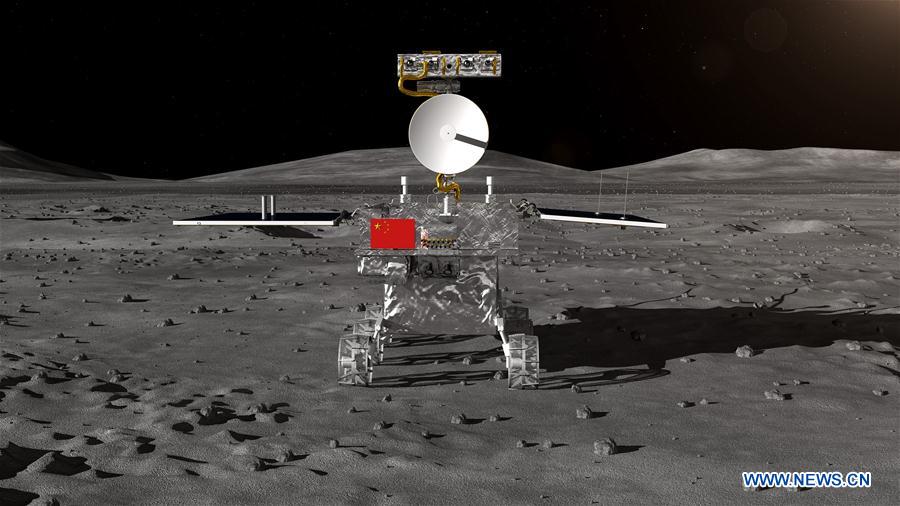China unveils Chang'e-4 rover to explore Moon's far side
China's moon lander and rover for the Chang'e-4 lunar probe, which is expected to land on the far side of the moon this year, was unveiled Wednesday.
China's moon lander and rover for the Chang'e-4 lunar probe, which is expected to land on the far side of the moon this year, was unveiled Wednesday.
Photo provided by State Administration of Science, Technology and Industry for National Defense shows the image of the rover for China's Chang'e-4 lunar probe. China's moon lander and rover for the Chang'e-4 lunar probe, which is expected to land on the far side of the moon this year, was unveiled Wednesday. The global public will have a chance to name the rover. [Photo/Xinhua]
Images displayed at Wednesday's press conference showed the rover was a rectangular box with two foldable solar panels and six wheels. It is 1.5 meters long, 1 meter wide and 1.1 meters high.
Wu Weiren, the chief designer of China's lunar probe program, said the Chang'e-4 rover largely kept the shape and conditions of its predecessor, Yutu (Jade Rabbit), China's first lunar rover for the Chang'e-3 lunar probe in 2013.
However, it also has adaptable parts and an adjustable payload configuration to deal with the complex terrain on the far side of the moon, the demand of relay communication, and the actual needs of the scientific objectives, according to space scientists.
Like Yutu, the rover will be equipped with four scientific payloads, including a panoramic camera, infrared imaging spectrometer and radar measurement devices, to obtain images of moon's surface and detect lunar soil and structure.
It will also endure vacuum, intense radiation and extremes of temperature. The moon has a large temperature difference between day and night, which can reach more than 300 degrees Celsius.
Both the lander and rover will carry international payloads for other countries.
The Chang'e-4 lunar probe will land on the Aitken Basin of the lunar south pole region on the far side of the moon, which is a hot spot for scientific and space exploration.
Direct communication with the far side of the moon, however, is not possible, which is one of the many challenges for the Chang'e-4 lunar probe mission.
China launched a relay satellite, named Queqiao, in May, to set up a communication link between the Earth and Chang'e-4 lunar probe.
The global public will have a chance to name the rover, according to State Administration of Science, Technology and Industry for National Defense.
Participants can submit their proposed names for the rover through the internet from Aug. 15 to Sept. 5, and the official name will be announced in October after several selection rounds.
Winners will be rewarded at most 3,000 yuan and invited to watch the lunar probe launch.
The name Yutu was chosen from 200,000 proposals submitted over two months worldwide.


